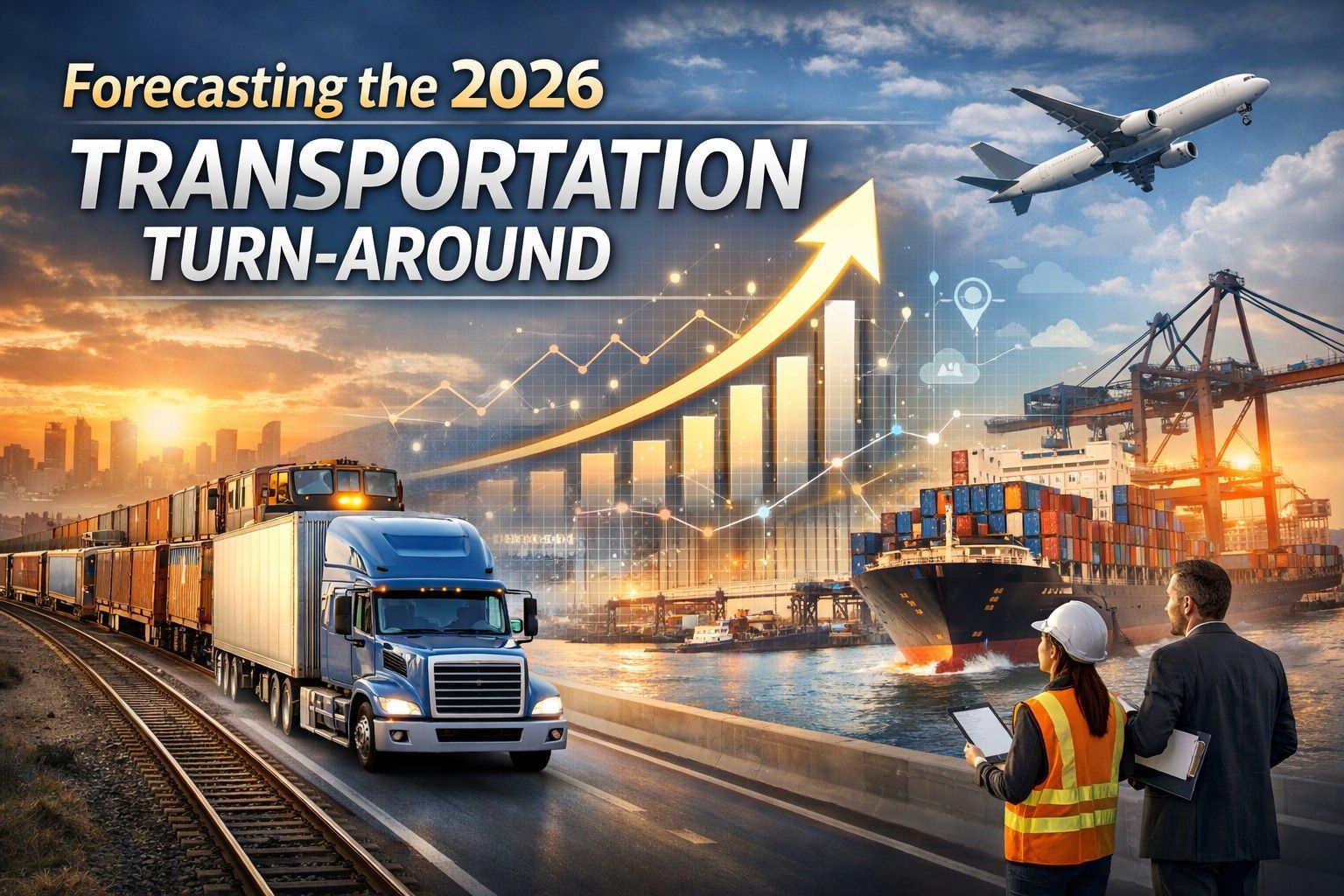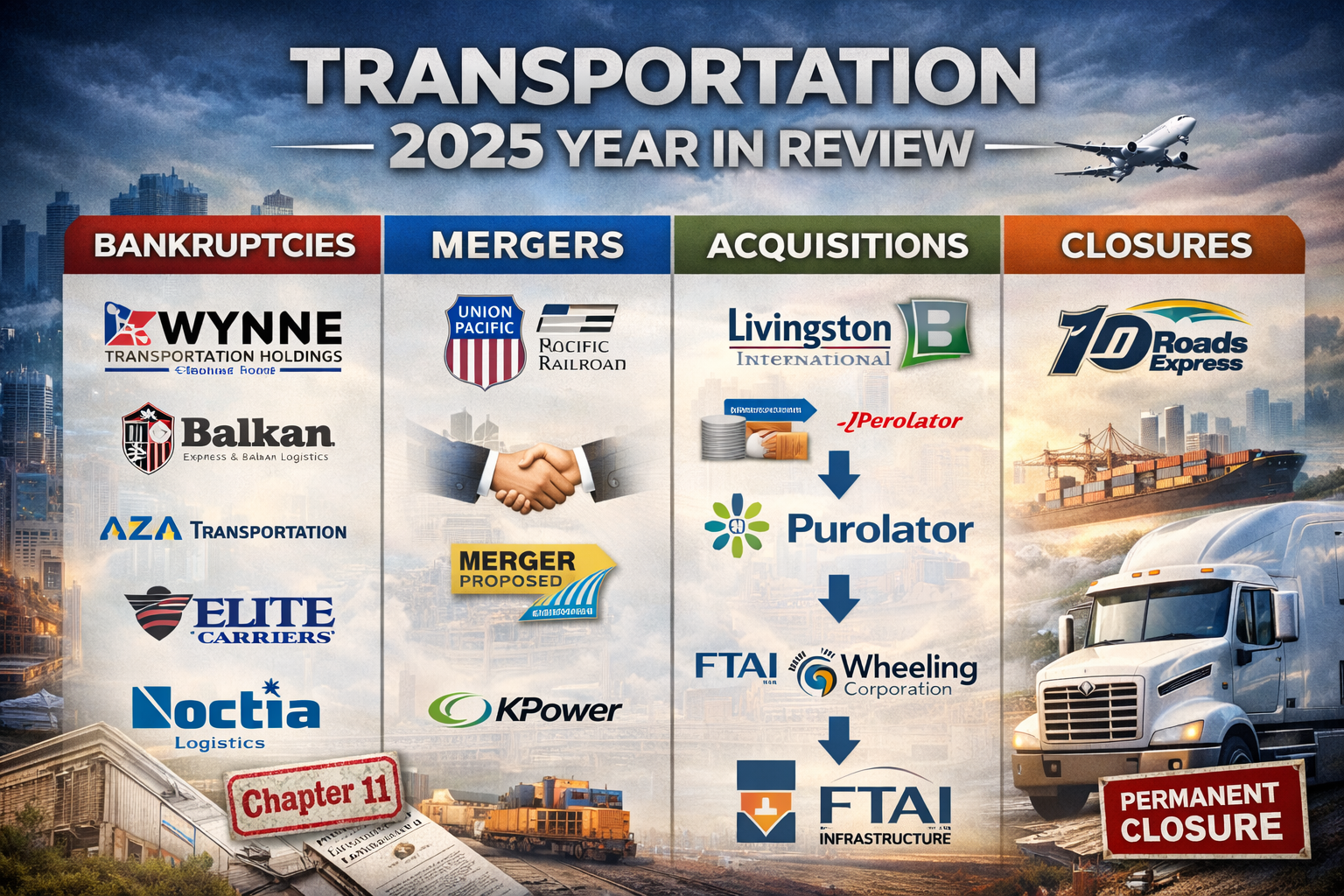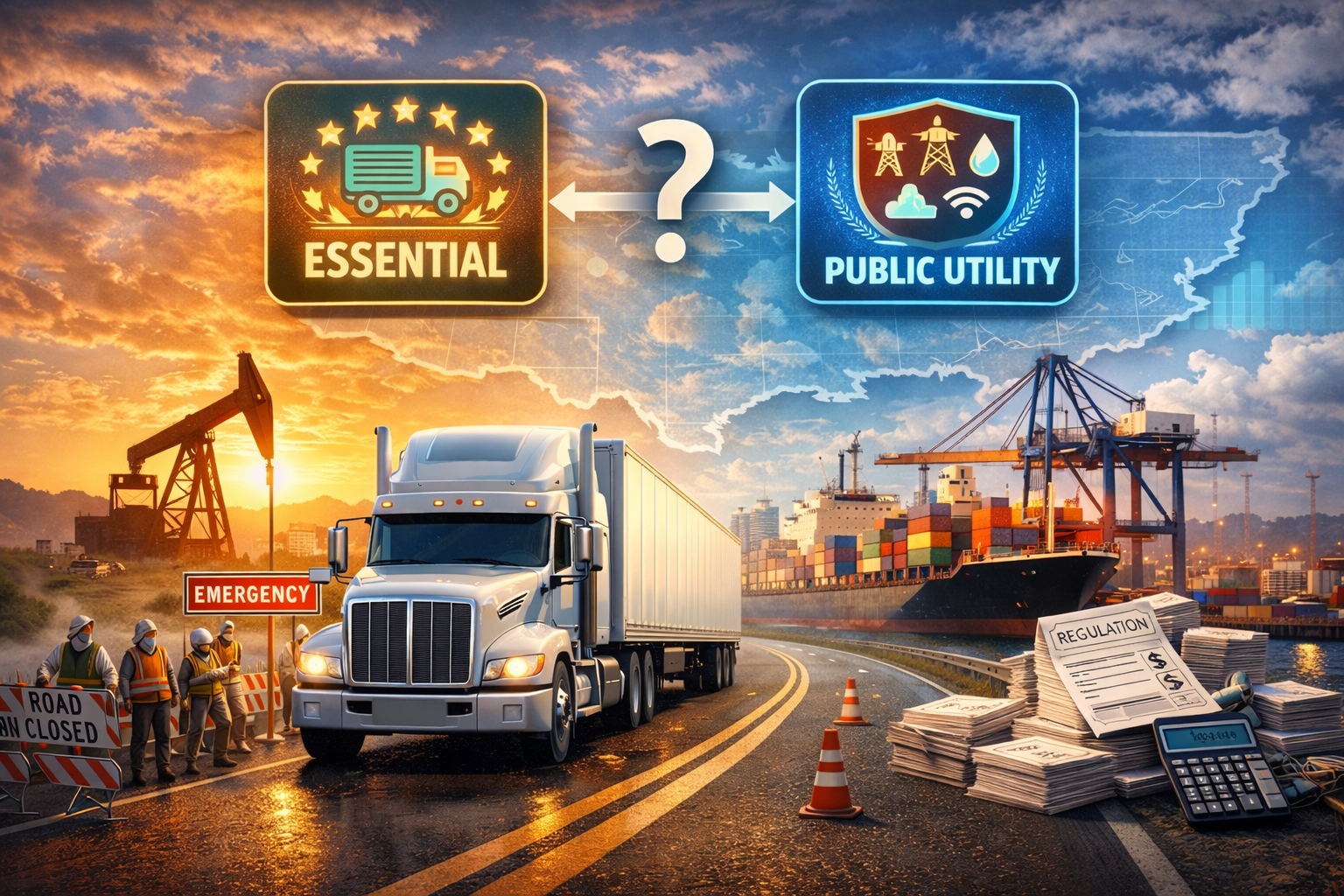2025 Tax Changes That Impact the Transportation Industry
Share this Article:

Transportation companies must continuously adapt to shifting tax regulations. In 2025, several federal and state-level tax changes take effect, influencing how businesses report, deduct, and plan. These updates impact everything from fuel tax treatment to per diem allowances, and companies with multistate operations may face increased complexity. Understanding these changes early helps businesses adjust strategies and remain compliant.
Overview of Key 2025 Tax Changes
The 2025 tax landscape introduces updates at both the federal and state levels that directly affect transportation businesses. Changes to indirect taxes, reporting standards, and allowable deductions are expected to influence everything from cash flow to compliance procedures. Transportation companies should begin evaluating these developments now to avoid disruption.
Federal Indirect Tax Updates
In 2025, federal updates to indirect taxes will affect how transportation companies account for purchases, leases, and equipment use. Adjustments to excise tax thresholds and exemptions for certain transportation-related assets may require changes to procurement strategies. Additionally, fuel tax treatment under federal programs is shifting to reflect sustainability initiatives, which may alter the cost structure for carriers and fleet operators.
State-Level Sales and Use Tax Changes
Several states are revising sales and use tax policies in 2025, with direct implications for transportation companies operating across jurisdictions. Common changes include narrowing or expanding tax exemptions for parts, maintenance services, and equipment. Some states are also increasing audit enforcement for use tax on out-of-state purchases. Companies with decentralized procurement or multistate fleets may need to update how tax is tracked and remitted.
IRS Reporting and Filing Modifications
The IRS is implementing changes to reporting thresholds and electronic filing requirements in 2025. Transportation businesses may see expanded obligations for Form 1099 reporting, especially for independent contractors and leased service providers. Updates to e-filing rules will also impact how returns and supporting documents are submitted. Staying current with these requirements helps prevent penalties and processing delays.
Per Diem Rates for the Transportation Industry
For 2025, the IRS has adjusted per diem rates for transportation workers, reflecting changes in cost-of-living benchmarks. These rates affect how companies reimburse drivers and crew members for meals and incidental expenses while traveling. Applying the correct per diem rate is critical for maintaining compliance and maximizing deductible expenses without triggering IRS scrutiny.
Sector-Specific Tax Impacts
Tax changes in 2025 affect transportation sectors differently. Updates to deductions, exemptions, and reporting standards may influence how each mode of transport manages compliance and plans for the year ahead.
Trucking and Freight Carriers
Trucking operations may face new limitations on equipment depreciation schedules and expanded state scrutiny on fuel and use tax filings. Revised per diem rates and changes to lease treatment under updated tax rules could also affect operating costs. Carriers with multistate fleets should closely monitor nexus-related obligations under the 2025 tax changes.
Airlines and Aviation Services
For aviation businesses, 2025 tax changes may impact the treatment of fuel surcharges, airport facility fees, and certain lease structures. Updates to federal excise tax rules on passenger and cargo services could alter cost allocations and reporting. Companies should also review how changes affect depreciation for aircraft and ground support equipment.
Rail and Maritime Operations
Rail and maritime operators may see changes in how infrastructure improvements and vessel refurbishments are treated for tax purposes in 2025. Some states are also revisiting exemptions on repair parts and port facility usage. These shifts can influence capital planning and require updates to how assets and expenses are reported.

Planning Strategies for 2025 and Beyond
With 2025 tax changes taking effect, transportation companies should reassess their compliance strategies and financial planning. Proactive adjustments help mitigate risk, improve accuracy, and identify opportunities for savings across operations.
Update Tax Compliance Systems
Legacy systems may not account for the latest tax rule changes. Updating tax compliance platforms to reflect 2025 requirements helps reduce filing errors and improves tracking across multistate operations. Integrated solutions that automate rate updates, exemptions, and reporting processes can strengthen audit readiness and support timely filings.
Leverage Available Credits and Exemptions
Several 2025 tax changes include adjustments to industry-specific credits and exemptions. Transportation companies should evaluate eligibility for fuel tax credits, infrastructure investment incentives, and state-level exemptions on parts and repairs. Properly applying these benefits reduces overall tax liability and supports reinvestment in operations.
Review Multistate Operations
Multistate activity increases exposure to varying tax rules and enforcement priorities. With new nexus standards and reporting requirements taking effect in 2025, companies should review where they have tax obligations and whether registrations, filings, or remittances need adjustment.
Audit-Ready Documentation Practices
With increased scrutiny tied to 2025 tax changes, maintaining clear, organized documentation is more important than ever. Transportation companies should retain detailed records for purchases, exemptions, per diem payments, and contractor relationships. Consistent documentation supports accurate filings and provides a strong defense in the event of an audit.
Key Takeaways
The 2025 tax environment brings several new compliance challenges for transportation companies. Indirect tax rules are shifting at both the federal and state levels, per diem rates are updated, and multistate filing requirements are becoming more complex. Companies that take the time to adjust now will be better positioned to avoid penalties and identify tax-saving opportunities.
How Transportation Tax Consulting Can Help
Transportation Tax Consulting helps businesses respond to 2025 tax changes with clarity and precision. Our team specializes in indirect tax strategies for trucking, aviation, rail, and maritime operations. We work with transportation companies to update compliance processes, address multistate requirements, and apply available exemptions and credits correctly.
Schedule a consultation to make sure your business is prepared and fully compliant for the year ahead.
Share with Us:




